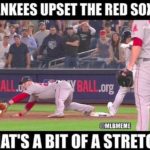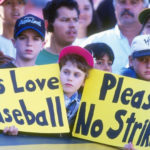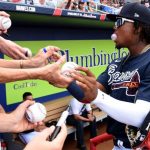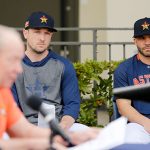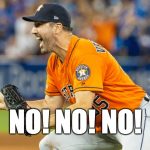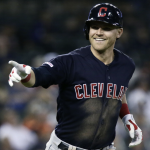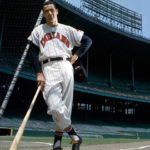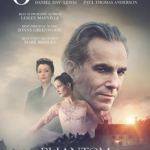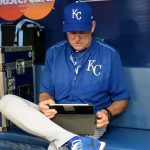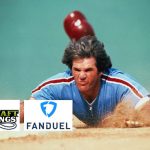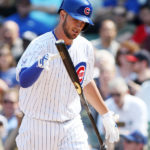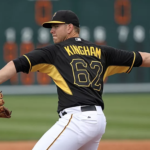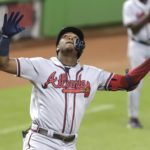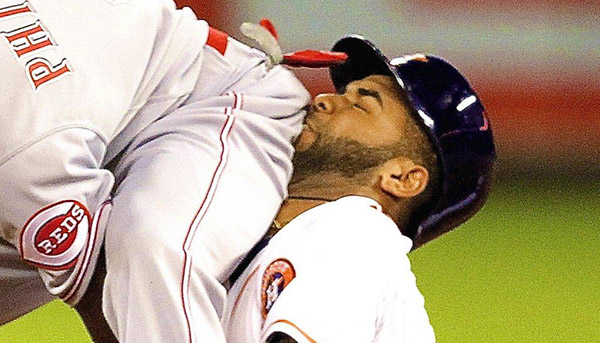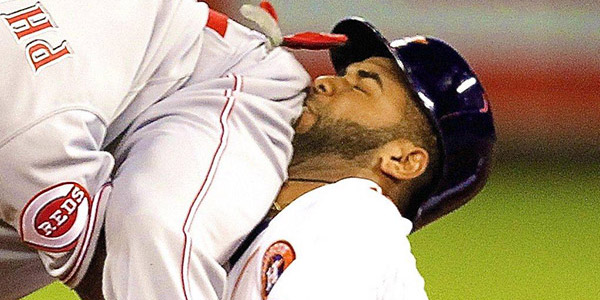Why Billy Heywood Is the Greatest Fictional Baseball Manager of All Time
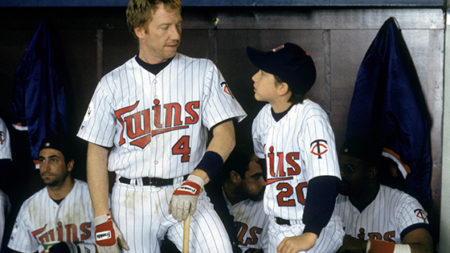 George Knox managed the California Angels in Angles in the Outfield. Lou Brown managed the Cleveland Indians in Major League. Jimmy Dugan, at times, managed the Rockford Peaches in A League of Their Own. None of these managers come close to the job that 12-year-old Billy Heywood did with the 1994 Minnesota Twins in the movie Little Big League. Managing a major league club is hard, but doing it while going through puberty on a national stage is even harder (insert pun). Let’s break down how a kid, while mourning the loss of his grandfather and watching his best player try to hook up with his mom, brought the hapless Twins within one game of the 1994 A.L. playoffs.
George Knox managed the California Angels in Angles in the Outfield. Lou Brown managed the Cleveland Indians in Major League. Jimmy Dugan, at times, managed the Rockford Peaches in A League of Their Own. None of these managers come close to the job that 12-year-old Billy Heywood did with the 1994 Minnesota Twins in the movie Little Big League. Managing a major league club is hard, but doing it while going through puberty on a national stage is even harder (insert pun). Let’s break down how a kid, while mourning the loss of his grandfather and watching his best player try to hook up with his mom, brought the hapless Twins within one game of the 1994 A.L. playoffs.
Dealing with the Front Office
After the sad passing of Twins owner Thomas Heywood, played by the great Jason Robards, Billy was given ownership of the team via his grandfather’s video cassette-taped will (1994 y’all). Now principal owner of the Twins, Billy Heywood wanted to make some changes starting with signing free agent, Rickey Henderson (the equivalent of signing Josh Donaldson now). Current manager and perpetual gum-chewer George O’Farrell, played by the late Dennis Farina, wasn’t excited about this possible acquisition. Despite O’Farrell’s problems with Henderson when he was third base coach for the Yankees, Heywood and GM Arthur Goslin, want to push forward in their pursuit of Henderson. From what we can see, O’Farrell just yells at his players during his entire time on screen. Billy Heywood sees him as a detriment to the team and an annoying character that we’ll all have to watch for another hour and 10 minutes, so he fires him. After being rejected by Bobby Valentine in their managerial search, Billy is crushed because it was 1994 and he didn’t know how stupid Valentine would turn out to be.
After his friend Chuck explains how easy it is to manage in the major leagues solely because of the D.H., Billy Heywood submits himself to the front office as the possible new manager of the Twins. Pitching coach Mac Macnally and Goslin aren’t convinced because of Billy’s lack of experience but mainly because … he’s 12! Billy suggests they make up an in-game scenario so he can prove his case. Mac does and Billy crushes the pitch (pun mostly definitely intended).
Managing Players While Your Voice Cracks
During his first game as manager, Heywood calls for a hit-and-run with catcher Mark Hodges at the plate. Hodges, understandably, is unhappy playing for a kid and ignores the sign by not swinging. The speedy second baseman, Mickey Scales is gunned down at second base by a mile. During the postgame press conference, Billy Heywood is second-guessed about that play by the media. Billy owns the mistake, choosing not to throw Hodges under the bus.
“I guess if I had to do it over again, I’d probably call for a hit-and-run.”
You won’t find another fictional manager in any baseball movie who would do that for his player. During one of his first games, Heywood meets a ridiculous cast of characters that are his players. One of his relief pitchers, John “Blackout” Gatling, is struggling with his command in the late innings of a game. Billy and Mac decide to bring in another pitcher. The only problem is that Gatling doesn’t like to be taken out of games. When Billy goes out to the mound to make the move, Gatling refuses and threatens to cut Billy’s journey to puberty short (there’s a pun somewhere in there). Unexpectedly, Hodges comes to the rescue and backs up Billy’s decision to take out Gatling. By protecting Hodges from embarrassment after he deliberately disobeyed a call, Billy Heywood earns the trust of him and the other players.
One of the Twins’ starting pitchers, Mike McGrevey, was a free agent during the 1994 season. He openly and consistently mocks Heywood because he’s a kid managing an MLB team (fair point) and is only interested in a “multi-year deal with big bucks.” During the early innings of an away game, McGrevey is getting crushed. After his half inning, McGrevey comes back to the dugout where he’s immediately met by Mac. He asks McGrevey why he’s not following the scouting reports or throwing the pitches he’s calling. McGrevey, unhappy with the Twins and Heywood, tells Mac the team should trade him. Mac says they will as soon as they find a team “dumb enough” to take him. Young Billy Heywood steps in and shows, despite his late nights of watching Night Nurses from Jersey, why he’s the greatest fictional baseball manager of all-time.
HEYWOOD
No we’re not, we’re not trading you.
MCGREVEY
So what are you going to do, bench me?
HEYWOOD
Nope, play you. When it’s your turn to pitch, you pitch. Nothing changes.
MCGREVEY
I don’t think that’s such a good idea. My concentration might not be there. I may tend to forget some of those scouting reports.
HEYWOOD
Well that’s up to you, you’re the free agent. Hey Mac, what’s the going rate for an absentminded pitcher who can’t get anybody out?
McGrevey comes out the next inning and starts dealing, striking out everyone he faces. Heywood does it again!
In-Game Strategy
After withstanding all the criticism from the media and his players, Billy Heywood eventually proves himself worthy as manager. He does this by creating innovative plays he designed. During a game against the Oakland A’s, shortstop Pat Corning is at the plate with speedster Mickey Scales at third base. Heywood, similar to Tommy Lasorda, is coaching third base. As the count comes to 3-0, Heywood calls time and goes over to talk with Corning. He asks him to take the next pitch because if he walks, they’re going to go with his designed play. The next pitch is ball four and Corning bursts out of the box and takes a hard turn around first base as he heads to second. As soon as the catcher fires down to second, Billy tells Scales to go home. The throw at second is cut off to throw out Scales at home, but he’s safe. Full disclosure: This double-steal play is so good it would totally work in today’s game.
In the Twins final one-game playoff against the Mariners, Heywood pulls out his masterpiece play. After a moonshot home run by Ken Griffey Jr., Heywood needs to get some momentum to put the Twins back in the game. Billy designs a pickoff play that doesn’t just involve the first baseman, but the entire team. After relief pitcher Jim Bowers walks Ken Griffey Jr., Heywood calls the play. Bowers actually throws over to first base to keep the play honest. On his second pickoff attempt, Bowers fakes the throw as first baseman, and future stepdad, Lou Collins pretends the ball gets away and runs after it down the right field line. Even the Twins right fielder, Tucker Kain commits to the fake as he comes down to “try” to find the ball. Griffey Jr. takes off for second base as Bowers fires the ball over to Corning at second base to tag him out. Heywood designs the most incredible hidden-ball trick of all time, even the likes of Lou Piniella had never seen.
The Twins end up losing the game on an incredible game-ending catch by Ken Griffey Jr., who robs Lou Collins of a home run. Little Big League is one of the most underappreciated baseball movies because it provides specific and realistic details that hardcore baseball fans and movie lovers truly appreciate. Billy Heywood didn’t need the help of all-star players like Dottie Hinson or a team of Angels! He succeeded with brilliant in-game strategy, great interpersonal skills and, eventually, learning how to avoid the temptation of adult films like Night Nurses from Jersey (11 times in three days!)
I would love to pontificate more about my admiration for the managerial prowess of Billy Heywood in Little Big League, but I can’t talk right now, I’m sitting on Lowell.
